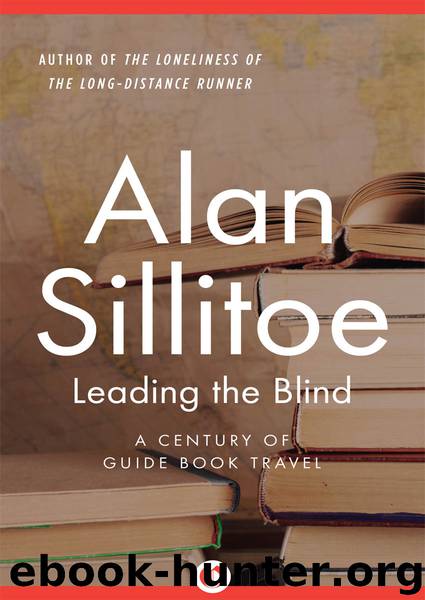Leading the Blind by Sillitoe Alan;

Author:Sillitoe, Alan;
Language: eng
Format: epub
Publisher: Open Road Media
Published: 2016-04-12T04:00:00+00:00
The main reason why so many English went to the Mediterranean coast of France was that of health, and Marseilles was the gate through which they passed in order to get there. Dickens gave a graphic picture of its summer climate in Little Dorrit (1856), and Murray in 1848 was equally explicit: ‘From the margin of the old harbour, lined with quays, the ground rises on all sides, covered with houses, forming a basin or amphitheatre, terminating only with the encircling chain of hills. From this disposition of the ground, the port becomes the sewer of the city – the receptacle of all its filth, stagnating in a tideless sea and under a burning sun, until a S.E. wind produces that circulation in its waters which the tide would do on other seas. The stench emanating from it at times is consequently intolerable, except for natives …’
As a reminder of times past we are told: ‘The Lazaret owed its foundation to the fearful ravages of the plague at Marseilles in 1720, which carried off between 40,000 and 50,000 persons, half the population. Amidst the general despair, selfishness, and depravity which accompanied this dire calamity, many individuals distinguished themselves by their noble self-devotion. The streets soon became choked with dead, and of the galley-slaves, supplied at the rate of 80 a-week to conduct the dead-carts, none survived.’
Nor is one allowed to forget that at the Revolution, ‘which inflamed to madness the fiery spirits of the people of the south, Marseilles furnished, from the dregs of its own population and the outcasts of other countries, the bands of assassins who perpetrated the greater portion of the September massacres in Paris. The well-known hymn of Revolution, the Marseillaise, was so called because it was played by a body of troops from Marseilles marching into Paris in 1792.’
By 1880 Marseilles had become ‘a grand city in site and extent, and, excepting Paris, no town in France has been more improved since 1853, by the creation of streets, quarters, harbours, and public edifices etc.’ In spite of all that, the town did not merit the accolade of a stay of some time. Its climate was said to be delightful at certain seasons but, nevertheless, ‘in summer and autumn the heat is intense – the streets like an oven, so that it is scarcely possible to move abroad during the daytime, and all rest during the night is liable to be destroyed by mosquitoes.’
Going east along the coast, Murray found in 1848 that none of the hotels at Cannes were any good, though there was a comfortable one at Grasse, ‘where an invalid from Nice might put up with advantage during the months of March, as the place is well sheltered’. At Antibes, however, the hotels were so bad that travellers were advised to ‘stop outside the gates, and send in for horses; they will thus save time, and their carriage will escape the risk of accidents, in being twice dragged through the most odious streets.’
Hyères,
Download
This site does not store any files on its server. We only index and link to content provided by other sites. Please contact the content providers to delete copyright contents if any and email us, we'll remove relevant links or contents immediately.
The Vikings: Conquering England, France, and Ireland by Wernick Robert(79829)
Ali Pasha, Lion of Ioannina by Eugenia Russell & Eugenia Russell(40086)
The Conquerors (The Winning of America Series Book 3) by Eckert Allan W(36945)
The Vikings: Discoverers of a New World by Wernick Robert(36894)
Cecilia; Or, Memoirs of an Heiress — Volume 1 by Fanny Burney(32385)
Cecilia; Or, Memoirs of an Heiress — Volume 3 by Fanny Burney(31760)
Cecilia; Or, Memoirs of an Heiress — Volume 2 by Fanny Burney(31728)
Empire of the Sikhs by Patwant Singh(22912)
The Secret History by Donna Tartt(18772)
Hans Sturm: A Soldier's Odyssey on the Eastern Front by Gordon Williamson(18437)
Cat's cradle by Kurt Vonnegut(15114)
Pimp by Iceberg Slim(14236)
Sapiens: A Brief History of Humankind by Yuval Noah Harari(14172)
Talking to Strangers by Malcolm Gladwell(13144)
Norse Mythology by Gaiman Neil(13143)
Leonardo da Vinci by Walter Isaacson(13114)
4 3 2 1: A Novel by Paul Auster(12235)
Underground: A Human History of the Worlds Beneath Our Feet by Will Hunt(11986)
The Radium Girls by Kate Moore(11877)
